- Home
- Georgette Heyer
The Toll-Gate Page 26
The Toll-Gate Read online
Page 26
‘Just a flesh wound,’ acknowledged Chirk, with a rueful grin. ‘That’s what made me late. It ain’t so easy to stop one arm bleeding, when you’ve only t’other to work with. Besides, it made a mess of my coat, so I loped off to have things set to rights. What’s the lay tonight?’
‘I’m going out, and I want you to wait for me here. If all goes as I hope it may, I shall need you in the morning. I’ve seen Stogumber today, and he has agreed to stay within doors until he hears from me again.’
‘Are you going to tell him where the ready and rhino’s hid?’
‘No: you will do that! You’ve nothing to fear from him. I must go now: I’ll tell you what I’ve planned when I come back!’
‘Just a moment, Soldier! Where might you be off to?’
‘I’m off to have a quiet chat with Henry Stornaway!’ grinned the Captain, and left him gaping.
The moon had risen, and a quarter of an hour later, John was walking up the drive at the Manor which led to the stables. Skirting these, he went on to the path across the garden. The house loomed before him, a dark mass silhouetted against the sky. No light shone from any window that he could see, but he trod silently, keeping to the turf beside the path. The door through which he had entered on his two previous visits was on the latch, and on the chest in the passage Winkfield had left the lamp burning low. John paused only to take off the brogues he was wearing. Leaving these beside the chest, he went softly up the stairs. The broad corridor at the top was dimly lit by another lamp, and on the table beside it was set a candlestick and a taper, innocent-seeming objects which had been placed there, John guessed, by Winkfield, for his use. He lit the taper at the lamp, kindled the wick of the candle from it, and stood for a moment, listening. The house was wrapped in a profound silence, but when he came to the dressing-room door, and paused outside it, he thought that he could detect the sound of movement in the room beyond it. He passed on, and through the archway which opened on to the three-sided gallery at the top of the main staircase. Below, the hall was a well of darkness, above, the great beams supporting the roof could be seen like shadows spanning the centre block of the house. John went on, the solid oaken boards under his feet as unyielding and as noiseless as a stone floor. He reached the archway leading to the other wing, and paused again. The silence seemed to press on his eardrums. Two steps brought him to the first door on the right; his fingers closed round the handle, and began slowly and firmly to turn it. The catch slid back so silently that he suspected the efficient valet of having lately oiled the lock. Pressing the door open a few inches, he released the handle, as cautiously as he had turned it the other way. The sound of heavy breathing now could be heard. The Captain slid into the room, shielding the flame of the candle with his hand. But the curtains were drawn close round the bed, and he saw that they were of worn velvet, too thick to be penetrated by candlelight. He shut the door, and although the tiny click as the catch slid home sounded like a pistol shot in his ears, it was not loud enough to rouse the sleeper in the four-poster.
The Captain turned, and took unhurried stock of his surroundings. Beside the bed stood a table, with a half-burnt candle on it, the snuffer poised on top of the quenched wick; a gold watch and chain; and a glass containing what appeared to be a paregoric elixir. John set his own candlestick down on this table, and softly parted the bed curtains. Henry Stornaway was lying on his side, turned away from him, his mouth slightly open, and his night cap over one eye. John looked down at him, considering him, and then bent over the bed.
Mr Stornaway woke with a convulsive start, and a shriek that was strangled in his throat. A hand was clamped hard over his mouth, forcing his head back against an equally vice-like grip on the nape of his neck. His body plunged, after the manner of a landed fish; his own hands, scrabbling free of the bedclothes, clawed at the one over his mouth, with as little effect as they would have had upon an iron clamp. A deep, soft voice said close to his ear: ‘Quiet!’
He could not move his head, but rolling his terrified eyes he caught a glimpse of a face bent over him.
‘I am going to take my hand from your mouth,’ said that soft voice, ‘but if you raise the smallest outcry, it will be the last sound you will ever make, for I shall break your neck. Do you understand me?’
Mr Stornaway, unable to speak, unable to nod, could only tremble, and roll his eyes more frantically than before. He trembled so much that the bed shook, and this seemed to satisfy his captor, for the hand left his mouth. With the best will in the world he could not have cried out; he could do no more than gasp for breath. The grip on his neck had not relaxed; it was not only painful, but it conveyed an exact impression to him of the ease with which this appalling visitor could put his threat into execution.
‘Unless you oblige me to, I shan’t hurt you,’ John said. ‘But you will answer me truthfully, and you will not raise your voice! Is that understood?’
‘Yes, yes!’ he whispered chokingly. ‘Pray do not – ! Pray let me go!’
He then broke into a fit of coughing, saw that dreadful hand descending again to cover his mouth, and dived under the bedclothes. While he thus muffled the sound of his paroxysm, John pushed back the curtains on that side of the bed, and sat down on the edge of it, waiting for his victim to emerge again. When the coughing ceased, and Mr Stornaway showed no signs of emerging, he pulled the clothes down, saying: ‘Sit up, you hen-hearted creature! Here, drink this!’
Mr Stornaway, struggling up on to one elbow, took the glass held out to him. It clattered against his teeth, but he managed to swallow the elixir. It appeared to revive him a little, for he dragged himself to a sitting position, and looked fearfully at his visitor. The candle now cast its light on to the Captain’s face. Stornaway’s eyes stared at him; he gasped: ‘Who are you?’
‘You know very well who I am. Brean’s cousin. Did he never tell you that he had an aunt who married into a better order of society than her own? I am the son of that marriage, and I took a fancy to visit some of the relations I had never before seen. But one of them I didn’t find, Mr Stornaway. Perhaps you can tell me what has become of Ned Brean?’
‘No, no, I haven’t seen him! I don’t know where he is!’ Stornaway whispered, white to the lips.
‘You’re lying. Ned was working for you and Coate. It was you who bought his services. You wanted him to pass a vehicle, heavily laden, through the pike, and afterwards to deny all knowledge of that vehicle. You wanted him also to assist in unloading from it some very weighty baggage. He did these things, but, later, he disappeared.’ He saw that Stornaway was watching him with dilating eyes, and continued: ‘I think, sir, that you have murdered Ned Brean.’
‘No! I swear I did not!’
‘Keep your voice down! Why should you hesitate to murder him, when you had murdered two others already?’
‘No, no, no, no! It’s a lie! I did not! I would not! I tell you I had no hand in it!’
‘No hand either in attempting to murder a Bow Street Runner? Do you take me for a flat?’ John said contemptuously. ‘Do you take him for a flat? Let me tell you that he reached the toll-house, with a knife slash across his shoulder, and a broken head, and he knew very well who had attacked him! When he is recovered enough to leave his bed, you will be arrested, Mr Stornaway, and you may try then to convince a jury that you did not thrust a knife into the Runner’s back. I wish you joy of that task!’
‘No, I tell you, no!’ Stornaway uttered hoarsely, drops of sweat starting on his brow. ‘I was not there! I knew nothing about it! O God, you must believe me!’
‘Believe you! I’ll come to watch you strung up at Tyburn! I know more of you than the Runner has yet discovered. I have been busy while I took charge of the gate – busy tracing your movements since the day you left London! Do not let us waste time! I know that it was you who laid the plans to steal a consignment of sovereigns on its way to Manchester. You not only knew that there would b
e such a consignment; you persuaded your friend at the Treasury to disclose the very date when it would set out from London!’
‘It’s untrue! If he said that, he is a liar! I did not – I never thought of such a thing! It was he who told me, cup-shot, one night! I didn’t plan it – it was Nat Coate! He saw how it could be done, but he promised there should be no killing! He promised me!’
‘But there was killing, and two men were guilty of that double murder.’
‘I was not one! I had no hand in it! On my soul, I had not!’
‘You were there, at the ford,’ John said implacably. ‘I know that, if the Runner does not.’
‘You can’t prove I was there! I did nothing, nothing! It was Nat, and the Gunns – all of it! Nat and Roger Gunn shot the guards, and Gunn’s brother drove the waggon! It was his own, and when – after the gold was taken off it, he drove it away, before daylight. I can tell you where he lives! It’s in Yorkshire, not far from –’
‘Ah, you are altogether contemptible!’ John said involuntarily.
This was not perfectly understood. ‘It’s true! Nat made me go with them, because I know the roads here! I did not wish to! He forced me, I tell you! I was in his power and could not refuse him!’
‘You would not have been for long in his power had you carried the information to Bow Street of what he planned to do,’ said John.
Tears began to run down Stornaway’s ashen cheeks. ‘I wish I had! I wish I were well out of the business! Nat said there would be no danger. I never dreamed he meant to shoot the guards! He swore they should be bound and gagged only!’
‘How could two armed men be bound and gagged, you fool?’
‘I don’t know – I didn’t think! I had no hand in it!’ Stornaway repeated desperately.
‘No hand in it! Was it Coate, then, who knew where the gold could be hidden safely? Or was it you who knew that somewhere in these hills there is a cavern, in which your father once broke his leg? A cavern which has been closed ever since, and is now almost – but not quite! – forgotten?’
If there had been any suspicion in Stornaway’s mind that the Captain could not possibly know so much about him as he had alarmingly hinted, this evidence that he was uncannily in possession of the one piece of information which could more effectively than all the rest implicate him in the robbery, effectually banished it. He looked so ghastly that John wondered whether he might be going to swoon; and although he opened and shut his mouth several times no sound came from it.
‘As yet,’ said John, faintly stressing the words, ‘the Runner doesn’t know of the existence of this cavern. But I fancy I could tell him whereabouts to look for it. Where had you been, Mr Stornaway, when I encountered you very early in the morning on the lane that leads over the hills? And for what purpose were you carrying a lantern?’
Only a whimper answered him. He remained silent and motionless, waiting. After a long pause, Stornaway whispered: ‘What do you mean to do? Why have you come here?’
‘I am not perfectly sure yet what I mean to do,’ John replied. ‘I came to discover the truth from you. Where is Ned Brean?’
A shudder ran through Stornaway; he covered his face with his shaking hands. ‘Dead!’
‘By whose hand?’
‘Nat Coate’s. I swear that’s the truth! If you knew – if you had seen – you would know I’m telling you the truth! He was stabbed! He was a big fellow, and very strong: I could not have stabbed him, or have dragged his body –’ He stopped, gulping. ‘If I tell you the whole, you’ll believe me? You must believe me! When Brean disappeared, I was afraid – but Nat would tell me nothing! So I went one night – because I had to know! I could not bear it! I found Brean!’ Another shudder ran through him. ‘It was horrible, horrible!’ He looked up. ‘He will stick at nothing! Nothing, I tell you! I wish I had never met him! I wish I had never heard of that curst gold! I wish I were dead!’
‘That wish at least is likely soon to be fulfilled,’ said John dryly. ‘There are three murdered men to be answered for.’
‘I killed none of them!’
John looked at him consideringly. Hope gleamed in the pale eyes which watched him so furtively. Stornaway put out a tentative hand, and ventured to lay it on his breeched knee. John could almost feel his flesh creep under the touch, but he restrained the impulse to shake the hand off, and sat still.
‘You’ve no grudge against me!’ Stornaway urged, keeping his eyes fixed on that unyielding face. ‘If you know what I’ve suffered! I swear, had I guessed what it would all mean, I would never have joined Nat in the business!’ He saw the Captain’s mouth curl, not pleasantly, and added hastily: ‘It was madness! The gull-gropers are after me, and this place is so encumbered it will do me no good when my grandfather dies! I tell you, I had to get money!’
‘Unfortunate that this money cannot benefit you for many a day to come!’ interrupted the Captain scathingly.
‘No, well – I didn’t realize that!’ Stornaway muttered. ‘I wish to God I had never touched it! If I could be quit of it all – but how the devil can I? I didn’t kill those men – no one could be sorrier than I am that they are dead! – but what a fix I am in, what a hellish fix I am in!’ He gave a groan, and once more buried his face in his hands.
‘Do you want to escape from it indeed?’
‘I can’t escape from it!’
‘If I could be sure that yours was not the hand which killed Brean, I would help you to do so.’
For a moment, the meaning of these words scarcely penetrated to Stornaway’s intelligence. The voice which uttered them was so hard that he could not believe he had heard aright. He looked up, staring. The eyes that looked down into his were as cold as seawater. But the Captain said steadily: ‘I could bring you off – if I chose to do it.’
Stornaway passed the tip of his tongue between his lips. A little colour mounted to his cheeks. ‘There’s a fortune in the cavern!’ he said, rather breathlessly. ‘Only keep your mouth shut, and you shall have –’
‘I do not want your fortune, or any part of it. Nor would it save you if I were to keep my mouth shut. The Runner is not here by chance: he knows that somewhere in this district the gold is hidden. Sooner or later he will find it, make no mistake about that! I’m not here to help you to the enjoyment of a fortune: it goes back to the Treasury. As for you, you may end the affair as a felon and a murderer, or as a mere tool, deceived by a rogue. If you did not kill Brean I have no interest in sending you to the gallows. If you show me Brean’s body, stabbed as you have described, and show me also where the gold is lying, I will bring you off scatheless.’
There was a long pause. ‘How?’ Stornaway said at last, watching him.
‘I will tell the Runner that you have been entertaining Coate in all good faith; that when it was proved to you what his reason was for wishing to visit Kellands you realized that it was due to your folly and gabbing tongue that these crimes came about; that in your anxiety to atone for your unwitting share in them you used your best endeavours to discover where the gold was hidden; that you and I went to search for it in one of the caverns with which this country abounds. You will appear a fool, but not a knave.’
Stornaway said suspiciously: ‘Why should you do this?’
‘I have a reason,’ John replied.
‘I don’t understand! What reason could you have?’
The level gaze indifferently scanned his face. ‘I shall not tell you that. It is nothing you would understand. But you may trust me to do as I have promised.’
Stornaway’s restless eyes shifted. ‘You want me to take you to the cavern?’ he said mechanically, as though he were thinking of something else.
‘Yes,’ John replied.
There was another pause. Stornaway looked up quickly, and away again. ‘Not now! I am unwell – I cannot go out into the night air! I won’t do that! I have the sore t
hroat. I caught cold in that place!’
‘In the morning,’ John said. ‘We will ride there together.’
‘In the morning… How can I know that you are not leading me into a trap?’
‘You will lead, not I.’
‘Yes, but…’
‘I give you my word,’ John said deliberately, ‘that if you deal honestly with me I will bring you off safely.’
‘I’ll take you there.’ Stornaway’s face twitched. He added, with another fleeting look up at John: ‘Coate must not know, of course. But he does not rise early in the morning. When – when should we go?’
‘When you wish.’
‘At – yes, at eight, then!’
‘Very well. I will meet you in the lane.’
‘Yes. Yes, that will be best.’ His voice sharpened. ‘The Runner! What have you told him?’
‘Nothing that can harm you.’
‘But you knew of the cavern,’ Stornaway said, suspicion in his face. ‘How can I know you have not told him that?’
‘You cannot, but I have not.’
Stornaway plucked at the sheet. ‘I’ll trust you! I have no choice!’
‘None,’ agreed the Captain calmly.
Seventeen
It was three o’clock when the Captain reached the toll-house again. He entered it through the office, and went into the kitchen so quietly that Chirk, who was seated at the table inspecting a collection of small objects laid upon it, was startled, and half leaped from his chair. When he saw who had entered, he sank down again, exclaiming: ‘Dang you, Soldier! What call have you to go like a cat?’
‘I thought you might be asleep.’
‘I had a nimwinks a while ago. What’s now?’
The Captain was looking at the oddments on the table. He raised an eyebrow at Chirk. ‘Tonight’s haul? Didn’t you tell me you were turning to pound dealing?’
‘So I will,’ asserted Chirk, scooping up a handful of coins, and bestowing them in his pocket. ‘Just as soon as I get my fambles on this reward you tell me about, that is! In the meantime, Soldier, my windmill’s dwindled into a nutcracker, so I was bound to make a recover, else I’d have starved.’

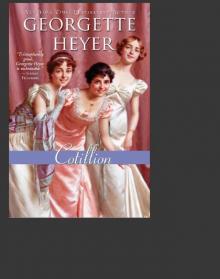 Cotillion
Cotillion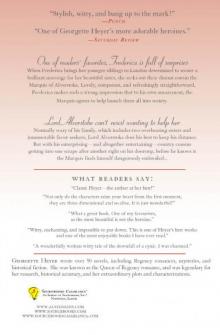 Frederica
Frederica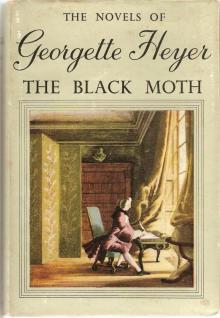 The Black Moth: A Romance of the XVIIIth Century
The Black Moth: A Romance of the XVIIIth Century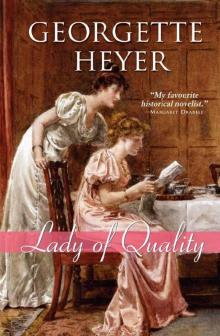 Lady of Quality
Lady of Quality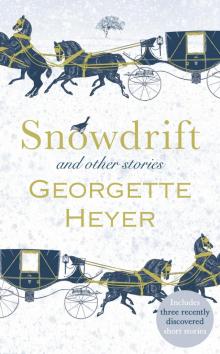 Snowdrift and Other Stories
Snowdrift and Other Stories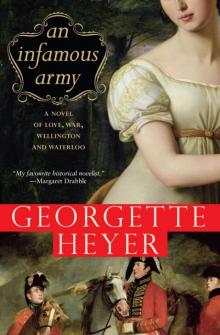 An Infamous Army
An Infamous Army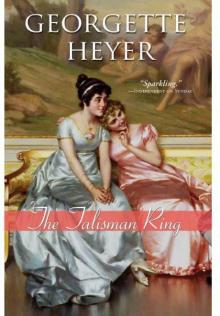 The Talisman Ring
The Talisman Ring Venetia
Venetia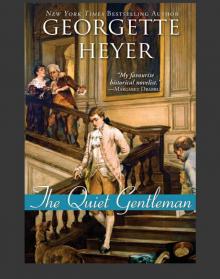 The Quiet Gentleman
The Quiet Gentleman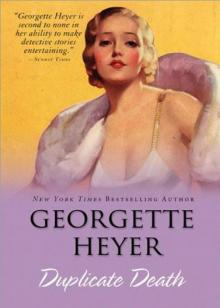 Duplicate Death
Duplicate Death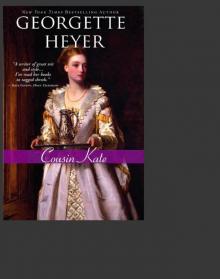 Cousin Kate
Cousin Kate Black Sheep
Black Sheep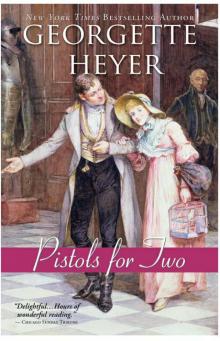 Pistols for Two
Pistols for Two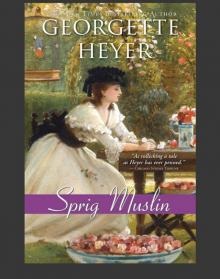 Sprig Muslin
Sprig Muslin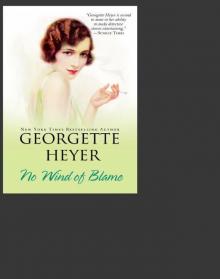 No Wind of Blame
No Wind of Blame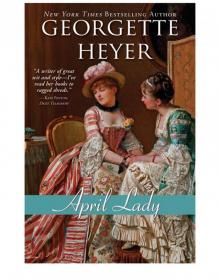 April Lady
April Lady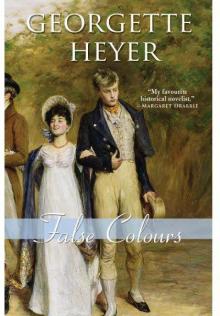 False Colours
False Colours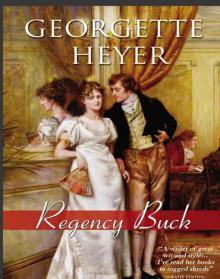 Regency Buck
Regency Buck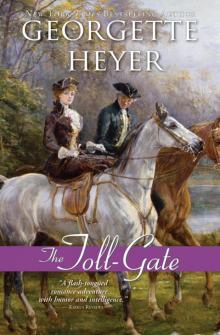 The Toll-Gate
The Toll-Gate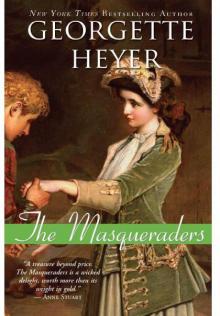 The Masqueraders
The Masqueraders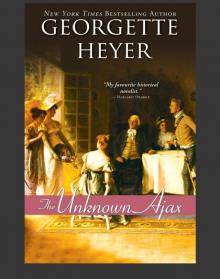 The Unknown Ajax
The Unknown Ajax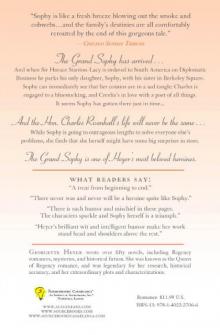 The Grand Sophy
The Grand Sophy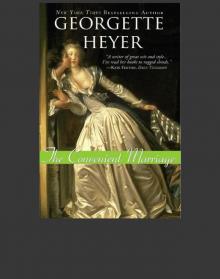 The Convenient Marriage
The Convenient Marriage Faro's Daughter
Faro's Daughter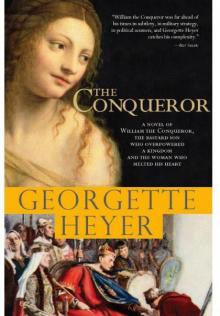 The Conqueror
The Conqueror The Foundling
The Foundling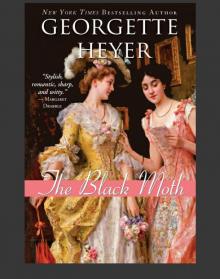 The Black Moth
The Black Moth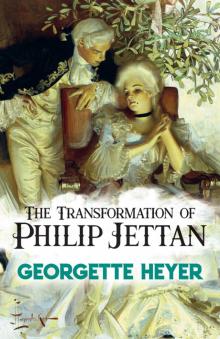 The Transformation of Philip Jettan
The Transformation of Philip Jettan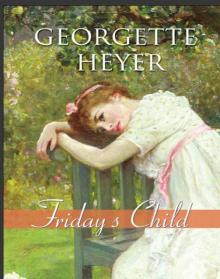 Friday's Child
Friday's Child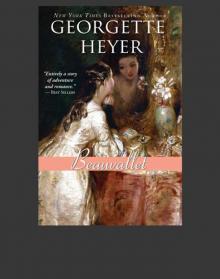 Beauvallet
Beauvallet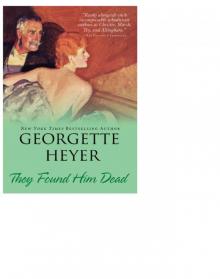 They Found Him Dead
They Found Him Dead Charity Girl
Charity Girl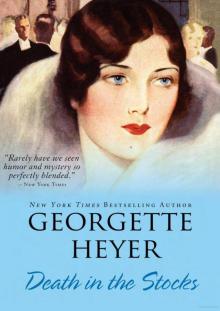 Death in the Stocks: Merely Murder
Death in the Stocks: Merely Murder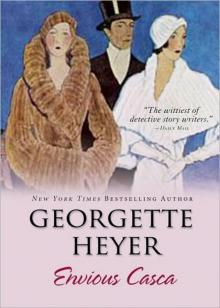 Envious Casca
Envious Casca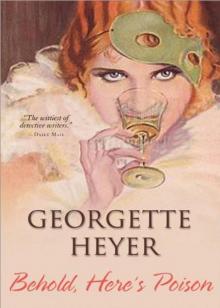 Behold, Here's Poison
Behold, Here's Poison Arabella
Arabella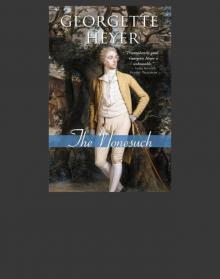 The Nonesuch
The Nonesuch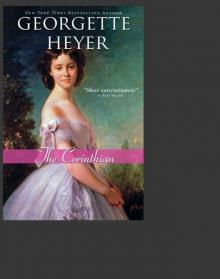 The Corinthian
The Corinthian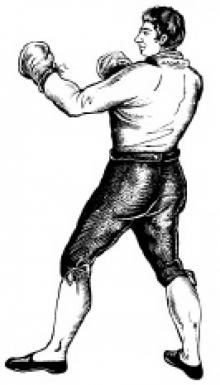 Jennifer Kloester
Jennifer Kloester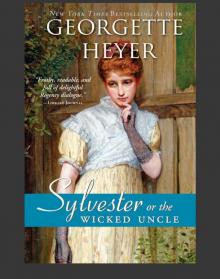 Sylvester
Sylvester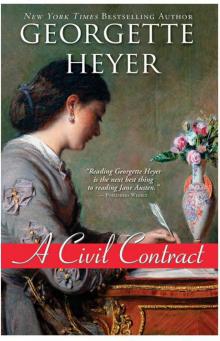 A Civil Contract
A Civil Contract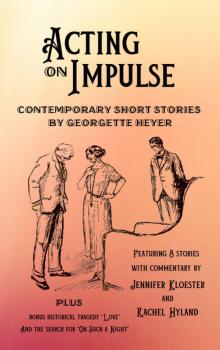 Acting on Impulse
Acting on Impulse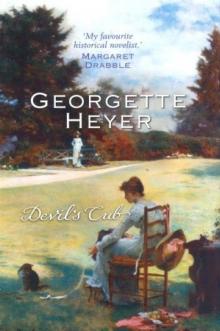 Devil’s Cub at-2
Devil’s Cub at-2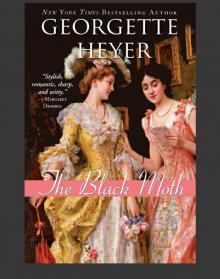 Black Moth
Black Moth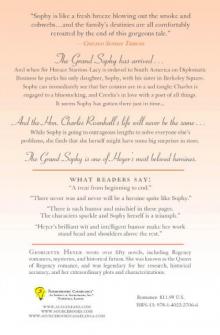 Grand Sophy
Grand Sophy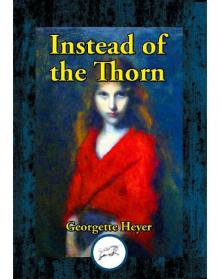 Instead of the Thorn
Instead of the Thorn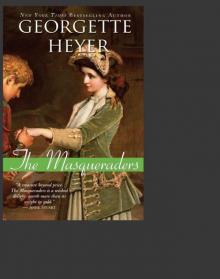 Masqueraders
Masqueraders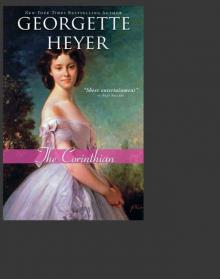 Corinthian
Corinthian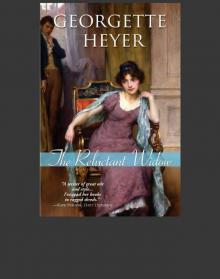 Reluctant Widow
Reluctant Widow